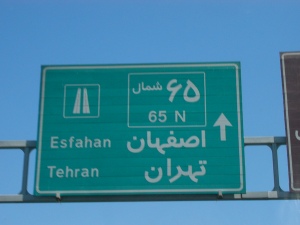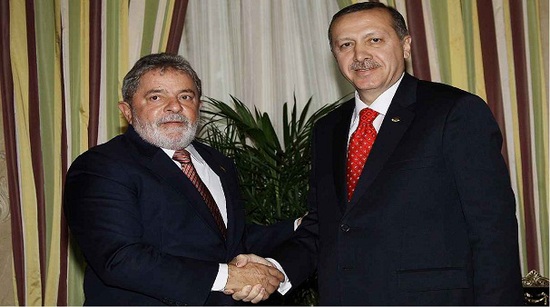The contrast could hardly have been starker. The Folha de São Paulo’s headline proudly read “Amorim announces nuclear deal with Iran”. The New York Times’s article, on the other hand, dryly noted that the uranium offer by Iran may “hinder efforts on sanctions”, stressing that “the United States, Europe and Russia responded with extreme skepticism to Iran’s announcement on Monday that it had reached an agreement to ship roughly half of its nuclear fuel to Turkey”, saying that the campaign for sanctions against Tehran would continue. This view was largely shared by the international press, which seems to have little faith in Lula’s or Erdogan’s ability to convince an ever defiant Ahmadinejad to play by the rules.
Did Brazil play the role of the conveniently appearing “useful idiot”, similar to Soviet sympathizers in Western countries during the Cold War? Several US analysts argued that Brazil’s naiveté and willingness to negotiate would buy Iran precious time to build nuclear bombs. Others went further and stated that Brazil’s strategy is to purposefully undermine and delay the United States- led campaign to impose tougher sanctions on Tehran. Or were Lula’s overtures motivated by the upcoming presidential elections, where he seeks to pass on his popularity to Dilma Rousseff, his candidate?
The West’s doubts are understandable. Over the past months, several deals had been reached, only for Iran to backtrack or change the conditions- causing observers to suggest that Iran is trying to buy time rather than actively seeking an agreement. The terms of the deal announced yesterday (1200 kg of enriched uranium) are suspiciously similar to those of of an accord reached between the US, Europe and Iran last year, which subsequently fell apart. There is little reason for Iran to accept a deal now that it rejected last year. Quite to the contrary, assuming that it has enriched more uranium since last October, it could be expected to be less open to a deal. After the Brazilian delegation had left, the speaker of the Iranian government announced that Iran would, contrary to the deal, continue to enrich uranium within its borders, a declaration that Brazil’s Foreign Minister sought to relativize as “playing to the domestic audience.”
There is thus quite some likelihood that Brazil’s and Turkey’s hopes to tame Iran will be dashed, just like Obama’s attempt to reach out to Ahmadinejad at the beginning of his term failed spectacularly. What does Brazil know about Iran’s opaque domestic politics anyways?
Yet, it is too early to discard the deal entirely. Brazil, currently a non-permanent member of the UN Security Council, certainly possesses more moral authority in Iran’s eyes than the United States or Europe, which are both seen as the beneficiaries of the “nuclear apartheid” imposed by the Non-Proliferation Treaty (NPT). Brazil is the only non-nuclear member of the BRIC group and may thus serve as a model for Iran.
Aside from the question about Iran’s and the NPT’s future, last weekend was important for another reason. Brazil’s  engagement in a region where it has no immediate strategic interests is indicative of profound a change in international relations in general. As emerging powers such as Brazil, Turkey and India start to engage outside of their respective regions, established powers, principally in North America and Europe, will have to get used to the presence of a new set of actors when discussing issues of global importance that were traditionally reserved for them- such as the Middle East Conflict, economic development in Africa, global warming and the debate about Iran and the NPT. The consequences of this change are largely unpredictable, since emerging powers’ agendas are not aligned except for the fact that they regard existing models of global governance as inadequate. Still, their participation is to be welcomed. After all, there is nothing better than some fresh minds working on old problems.
engagement in a region where it has no immediate strategic interests is indicative of profound a change in international relations in general. As emerging powers such as Brazil, Turkey and India start to engage outside of their respective regions, established powers, principally in North America and Europe, will have to get used to the presence of a new set of actors when discussing issues of global importance that were traditionally reserved for them- such as the Middle East Conflict, economic development in Africa, global warming and the debate about Iran and the NPT. The consequences of this change are largely unpredictable, since emerging powers’ agendas are not aligned except for the fact that they regard existing models of global governance as inadequate. Still, their participation is to be welcomed. After all, there is nothing better than some fresh minds working on old problems.
Read also:
Turkey must reach out to Brazil’s new leader
Turkey and Brazil: New Powers in a Transforming Global Order?
For Brazil and Turkey, a Natural Defense Partnership Deepens
Fotos:
1 -Ricardo Stuckert
2 -Oliver Stuenkel









